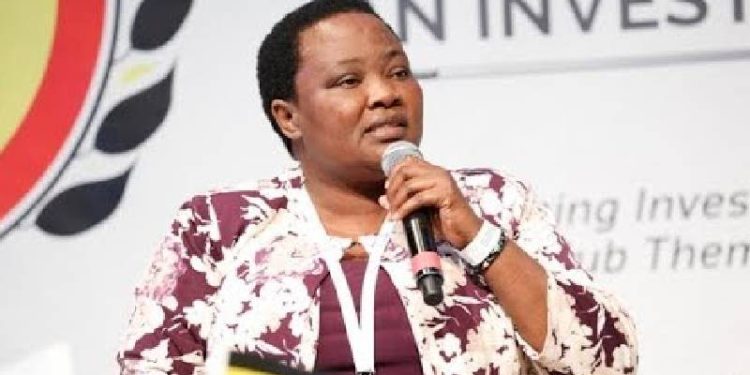Prime Minister Robinah Nabbanja’s recent suggestion that the Ugandan government might compel its citizens to record statements at police stations to explain why they remain poor is beyond absurd. It reads like a deranged satire, an Orwellian nightmare where the state attempts to bully its citizens into wealth.
Nabbanja’s delusional belief is that the government has done enough to lift people out of poverty through initiatives like Emyooga and the Parish Development Model. But has it? The asinine suggestion that people are poor simply because they “intentionally refused to participate” or “misused the funds” is a gross oversimplification. It blatantly ignores the myriad systemic issues that plague these programmes, such as rampant corruption, bureaucratic inefficiency, and the sheer lack of financial literacy among beneficiaries.
Does Nabbanja genuinely believe that her government’s initiatives are flawless and that the only reason they fail is the laziness or malevolence of the poor? What about the entrenched corruption that siphons off funds meant for development? What about the red tape that chokes efficient implementation? What about the pathetic state investment that fails to address the root causes of poverty?
Nabbanja’s threat to “make them rich by force” is not just laughable; it’s chilling. How exactly does she plan to enforce this ridiculous edict? Will the police be conducting house-to-house raids, demanding financial statements and plans for wealth creation? Will citizens be fined or jailed for not being wealthy enough? This kind of authoritarian policy sounds more like a plot from a dystopian novel than any plausible solution.
Moreover, Nabbanja’s assertion that people have large tracts of land that they are not utilising is another sweeping generalisation. What if the land is arid or infertile? What if the owners lack the resources or knowledge to farm effectively? What if they are trapped in a cycle of debt and cannot afford the initial investment required to make the land productive?
Let’s indulge in a bit of dark satire and imagine the kind of questions that might be asked in these proposed police station interviews:
1. “Excuse me, citizen, why are you poor? Did you wake up one day and decide it would be a splendid idea to struggle for a living?”
2. “Why haven’t you turned your two acres of rocky wasteland into a thriving agricultural enterprise? Haven’t you heard of magic beans?”
3. “Do you realise that by not participating in government programmes, you are single-handedly undermining the nation’s economic growth? How dare you!”
These questions, while absurd, highlight the equally absurd nature of Nabbanja’s proposal. The idea that poverty can be eradicated through forced participation in flawed programmes is not just impractical; it’s insulting.
The Prime Minister’s comments betray a profound ignorance of the complex, multifaceted nature of poverty. It’s not just about lack of participation in government schemes. Poverty is intertwined with issues of health, education, infrastructure, and systemic inequality. It’s exacerbated by corruption and mismanagement at every level of government.
Uganda’s status as one of the poorest countries in the world, with 41% of its population living on less than $1.90 a day, is a damning indictment of successive governments’ failures to address these issues. Nabbanja’s simplistic solution of blaming the poor for their poverty and threatening to “make them rich by force” is not only misguided but also dangerously out of touch with reality.
Instead of hauling the poor into police stations, perhaps the government should start by looking inward. How about compelling statements from officials who misappropriate development funds? Or those who allow bureaucratic hurdles to stifle progress?
If Nabbanja is serious about tackling poverty, she should focus on improving the efficiency and transparency of government programmes, investing in education and healthcare, and addressing the structural issues that keep people poor. Forcing the poor to explain their poverty will do nothing to alleviate it. Instead, it will only serve to alienate and further marginalise them.
To illustrate the absurdity of Nabbanja’s proposal, let’s envision a satirical scenario where her plan is implemented:
At the local police station, a long line of citizens waits to explain their poverty. The officer on duty, clipboard in hand, asks the first in line, “So, why are you poor?”
The bewildered citizen replies, “Well, the government programmes didn’t reach our village, and the little funds we got were taken by local officials. Also, the land is too dry to farm.”
The officer, unfazed, scribbles down, “Citizen is poor due to poor attitude and misuse of funds.” Next!
Nabbanja’s suggestion that the government might compel citizens to explain their poverty is a tragicomedy of errors. It’s a tone-deaf, simplistic, and ultimately futile approach to a deeply complex issue. If the Prime Minister truly wants to help lift Ugandans out of poverty, she needs to abandon this farcical notion and focus on genuine, systemic solutions.
Nabbanja’s threat to “make them rich by force” should be a wake-up call for all who care about genuine development and poverty alleviation in Uganda. It’s time for serious, thoughtful action, not coercive, blame-shifting theatrics.







Discussion about this post